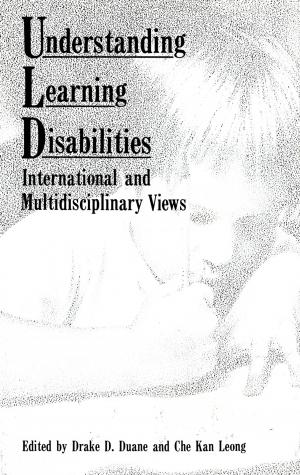Cardiovascular Disease in the Elderly
Nonfiction, Health & Well Being, Medical, Specialties, Internal Medicine, Cardiology| Author: | ISBN: | 9781475718157 | |
| Publisher: | Springer US | Publication: | April 17, 2013 |
| Imprint: | Springer | Language: | English |
| Author: | |
| ISBN: | 9781475718157 |
| Publisher: | Springer US |
| Publication: | April 17, 2013 |
| Imprint: | Springer |
| Language: | English |
After a certain age, one is elderly, aged, venerable, and patriarchal. Or just plain old. When I became old, I did not know it. I do know it now because of a syndrome of which I had previously been unaware. It is quite simple-when it hurts, it works; when it doesn't hurt, it doesn't work! Writing about the old is a preoccupation of the young, and that is as it should be because it is the young who must carry the burden of the old. I don't know the average age of the contributors to Franz Messerli's book, but I would guess it to be less than 50, which to me is positively pubescent! For many years I thought geriatric medicine was nonsense, and today I still think some of it is. What changes with age are principally the attitude and purposes of the individual and how much energy he or she has to carry out those purposes. It isn't so much that the goals, ambitions, and desire to alter or improve the world disappear; they just diminish along with what it takes to accomplish them. Which brings me to one particular aspect of aging, that is, the cardiovascular system. The first evidence of the cardiovascular system's aging is the failure of the heart to respond to the demands placed on it.
After a certain age, one is elderly, aged, venerable, and patriarchal. Or just plain old. When I became old, I did not know it. I do know it now because of a syndrome of which I had previously been unaware. It is quite simple-when it hurts, it works; when it doesn't hurt, it doesn't work! Writing about the old is a preoccupation of the young, and that is as it should be because it is the young who must carry the burden of the old. I don't know the average age of the contributors to Franz Messerli's book, but I would guess it to be less than 50, which to me is positively pubescent! For many years I thought geriatric medicine was nonsense, and today I still think some of it is. What changes with age are principally the attitude and purposes of the individual and how much energy he or she has to carry out those purposes. It isn't so much that the goals, ambitions, and desire to alter or improve the world disappear; they just diminish along with what it takes to accomplish them. Which brings me to one particular aspect of aging, that is, the cardiovascular system. The first evidence of the cardiovascular system's aging is the failure of the heart to respond to the demands placed on it.















